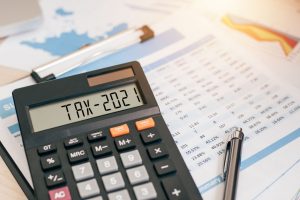This post is aimed to trace the history of taxation in Nigeria
Tax is one of the great tools upon Which the whole national fabric is based on. Its importance can’t be over-emphasized as it is necessary to the existence and prosperity of a nation. However, It is arguable that tax is the price or consideration of the social contract between the government and the governed in modern democracies.
There is hardly any government today that does not rely on tax measures to provide the much-needed revenue for socio-economic development and amelioration of inequalities of wealth in society.
The development of any nation depends mostly on the amount of revenue generated by the government for the provision of infrastructural facilities. Thus, Taxation is the key to unlocking the resources required for public investment and infrastructure growth.
A layman may confuse tax with club levy, association dues, voluntary payment or donation etc. while the aforementioned involve an exaction of certain pecuniary property, they differ from the legal concept of tax, as the following definitions bear out. T
ax is defined as: “A monetary charge imposed by the government on persons, entities, transactions or property to yield public revenue”.
Hence, the need to go through the historical antecedents of taxation in Nigeria.
In our recent article, we have already traced the history of commerce in Nigeria
History of Taxation in Nigeria
The history of taxation in Nigeria could be traced before the colonial administration of the territory now known as Nigeria, an effective tax system was reportedly in operation in indigenous kingdoms and communities. In 1904, notable tax legislation which harmonized the various traditional taxes was issued, called the Land Revenue Proclamation Law of 1904.
This Law affected the Northern protectorate of Nigeria until the amalgamation of the Northern and Southern protectorates in 1914 when the Native Revenue Ordinance of 1917 was enacted to cover the areas of the Western Region of Nigeria.
Nevertheless, the Eastern region of the country had to wait until 1927 after much debate and hesitation for the first personal income tax law.
This sparked disturbances culminating in the Aba Tax Riot of 1929. An epoch-making statute in the field of company law was specifically introduced for the taxation of
company profits under the Companies Income Tax Ordinance 1939.
In 1940 there was major tax legislation, which for the first time applied throughout the country having consolidated all previous tax ordinances from 1906 to 1940. It also provided for the appointment and control of tax collectors by the residents.
These were the Direct Taxation Ordinance No. 4 of 1940 and the Income Tax Ordinance No.3 of 1940. The Direct Taxation Ordinance provided for the taxation of Nigerians except those in the township of Lagos.
Read Also: History and functions of NDLEA
In 1943, a more comprehensive income tax ordinance repealed the 1940 ordinance, with a slightly higher tax rate. By the turn of the year 1946, it had become very clear that hitherto legal arrangements of ruling the country as a unitary state were palpably inadequate.
The introduction of the Richards constitution saw the country’s division into three regions. However, true federalism was fully achieved in 1954. The essential feature of federalism is the formal distribution or allocation of tax jurisdictional powers between the federal and state governments. Hamilton expressed it better when he said:
“It is … as necessary that the state government should be able to command the means of supplying their wants, as that the national government should possess the like faculty in respect of the union”.
The modern taxing system by the Federal Government of Nigeria under its taxation arm; the Federal Board of Inland Revenue (FBIR) could be dated back to the year 1939 when the company’s income tax ordinance was created.
Basis of Taxation in Nigeria
In a nutshell, taxes are paid because the state or federal governments implement tax laws. Although taxes are considered a legal requirement, paying taxes is also considered a civic duty. If you neglect to pay, the mediating body that oversees taxes (the Federal Inland Revenue Service) will require that you do so, otherwise, you might face penalties such as large fines or jail time.
Read Also: Heroes who fought for Nigerian Independence
In 2015, the federal government of Nigeria collected over 3.7 trillion Naira in taxes. This could come from several sources such as Personal Income Tax, Payroll Tax, Corporate Tax, Tariffs and many more.
Thus the compulsory imposition of tax on a citizen is not a derogation from the right of the citizens to his property, but a necessary exercise of governmental powers. These powers to make laws for the imposition of tax are vested by Section 4(2) of the constitution of the National Assembly.
A collective reading of Section 4 of the constitution shows that taxes on income, profits or capital gains and stamp duties are exclusive to the National Assembly. Only the National Assembly can legislate on the imposition, collection and administration of any tax or duty envisaged under items 58, and 59 of the exclusive legislative list”.
National Assembly Act
Notwithstanding, the National Assembly may by an Act “provide that the collection of any (of the aforementioned) tax or duty or the administration of the law imposing it shall be carried out by the government of a state or other authority of a state.
The House of Assembly of a state may without prejudice to the powers conferred on the national assembly “make provision for the collection of any tax, fee or rate or for the administration of the law providing for such collection by a local government council” .
The government requires these funds to discharge its numerous responsibilities for the development of the country, the betterment of society as a whole and other non-developmental but essential obligations to the citizens of the country.
Therefore, any tax emanating from such properly enacted legislation has the force of law. The Nigerian statute book is replete with such tax legislation.
We will now turn to an overview of some of these pertinent tax laws. But before that, it is important to point out that taxes may be direct or indirect.
Direct and Indirect Taxes
A direct tax is demanded from the very person(s) who it is intended or desired should pay it. Under this designation are included taxes, which are assessed upon the property, person, business, income and so on of those who are to pay them.
Examples of direct taxation include Personal Income Tax, Business Tax, Capital Gains Tax, and Companies Income Tax.
Indirect taxes are those which are demanded from one person with the expectation and intention that he shall identify himself at the expense of another. In other words, indirect taxes are those which are imposed on commodities before they reach the consumer and are paid by those upon whom they ultimately fall, not as taxes but as part of the market price of the commodity.
Examples of indirect taxation are Value-Added-Tax (VAT), stamp duty, excise duty, customs duty and sales or purchase tax.
It is noteworthy that indirect taxes may affect the cost of living as such taxes are borne by the consumer
of such goods. A good example was the failed attempt by the federal government to jack the VAT rate to 10%.
Types of Taxes in Nigeria
1. Corporate Income Tax (CIT)
2. Petroleum Income Tax (PPT)
3. Value Added Tax (VAT)
4. Personal Income Tax (PIT)
5. Withholding Tax (WHT)
6. Education Tax (EDT)
7. Capital Gains Tax (CGT)
All Nigerian registered companies that earn capital gains are subject to capital gains tax. Calculate capital gains tax and submit to FIRS through designated banks along with business income tax.
Read Also:
History of the English Language in Nigeria
History of Drama and Theatre in Nigeria
Conclusion: History of Taxation in Nigeria
- How To Become A Good Comedian in Nigeria - April 11, 2022
- How To Become a Clinical Neuropsychologist in UK - February 22, 2022
- Updated GOTV Lite Channels List (2025) - February 22, 2022


